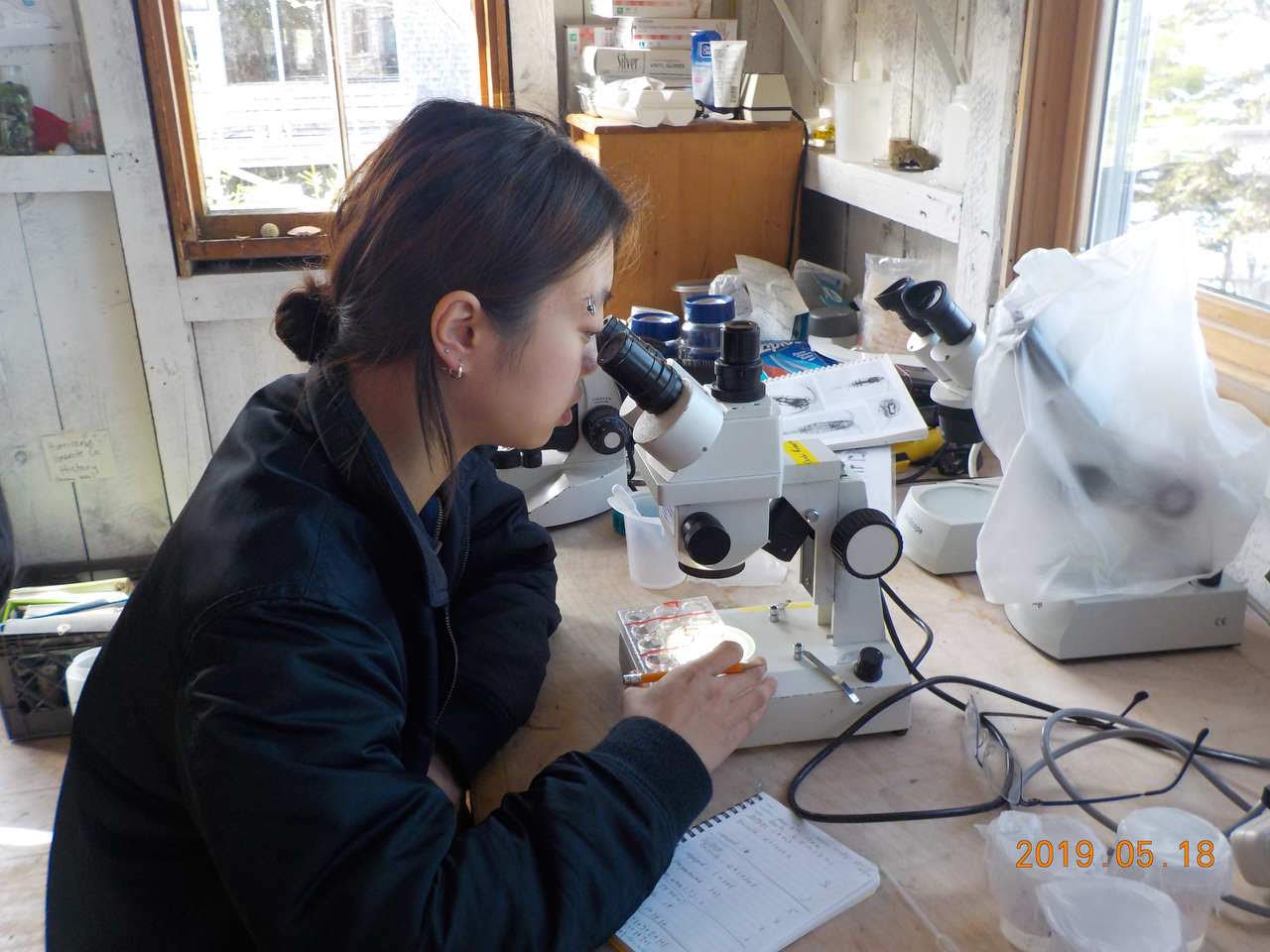Written by island educator, Lilla Fortunoff.
2019 is the 6th year that Marilyn DelDonno and Steve Scrimshaw have brought a group of students from the Cambridge School of Weston (CSW) to the Hurricane Island Center for Science and Leadership. This year is my 3rd season working as an educator on Hurricane Island, but it is my first Spring here and my first time working with school programs. I am in awe of the community and commitment that has been fostered here by students who come to the island acquaintances and leave as great friends.
It requires energy and care to wake up every day and choose to be a positive force in this community. This choice is one I rejoice in and have made again and again since June 2017. Seeing the way that the students continued to make this choice despite 5:00 am wake ups to catch low tide before breakfast and taking only two showers in eight days was inspiring. Seeing them make the choice because of the knowledge that the students had each other’s backs and the idea that curiosity is cool made me happier than I can describe. They supported each other unconditionally during the raft challenge, rock climbing, and in times of learning new information. They put energy and care into taking time to laugh, sing, and dance. The dove fully into bringing out the most in each other and in their Hurricane experience. To hold silliness and focused responsibility in cohabitation within one self is a challenge to which the CSW group rose joyfully.
This year, not only did the group initiate original marine biology and ecology research projects (such as attempting to quantify the fecundity of Fucus vesiculosus (a species of intertidal algae), and counting and measuring the zooplankton found at different times of day and at different ocean depths), but Marilyn also added an environmental history component to the course. This included studying the lives of Penobscot and Wabanaki indigenous peoples who lived around Penobscot Bay and Hurricane Island as early as 5,000 years ago (though, indigenous peoples have lived in Maine since at least 11,000 years ago) and studying the experiences and lives of European immigrants who worked for the Hurricane Island Granite Company and their families in the late 19th and early 20th centuries. The final class project for the students will be to answer the question “What role has the lobster fishery had on the communities of Penobscot Bay?”. In order to help with this project, the students are reading The Secret Life of Lobsters by Trevor Corson and over the course of the week on Hurricane, we went lobstering to see how the magic happens and get a bit of an understanding of what lobstering entails. Additionally, we were able to connect the students to three members of the fishing community of Penobscot Bay: Yvonne Thomas who works for the Island Institute in Rockland and is the mother of lobstermen, Rick Wahle who is a marine scientist specializing in lobster at the University of Maine’s Darling Marine Center, and Kathleen Reardon who works for the Department of Marine Resources as the lobster biologist for the state of Maine. The students became deeply immersed in all things lobster industry and asked extremely thoughtful and pressing questions of our guest speakers regarding the future of the lobster industry in Maine, the social dynamics of the people involved in lobstering communities, and whether or not our guests ate lobster themselves (yes). This week in mid-May was chilly, foggy, and rainy, but the students from CSW showed me the power in loving Spring on Hurricane.








